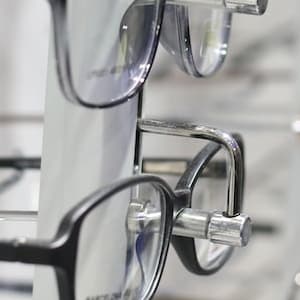close one eye: Idiom Meaning and Origin
What does ‘close one eye’ mean?
The idiom "close one eye" means to deliberately choose to ignore or overlook something, usually unethical or illegal, in order to benefit oneself or someone else.

Idiom Explorer
The idiom "shut one's eyes" means to consciously ignore or disregard something, often a problem or truth, by refusing to see or acknowledge it.
The idiom "eye up" means to look at or observe someone or something with interest or desire, typically in a romantic or sexual way.
The idiom "eyes on the prize" means to keep one's focus and attention on achieving a goal or desired outcome in order to be successful.
The idiom "eye-opener" means something that is surprising or enlightening, often leading to a change in perspective or understanding.
The idiom "dry one's eyes" means to stop crying or to cease being emotional about a situation.
The idiom "dollar-sign eyes" refers to someone who is extremely greedy or obsessed with money, often to the point of disregarding ethical or moral considerations.
The idiom "cut off one's nose to spite one's face" means taking a self-destructive action to hurt someone else, but ultimately hurting oneself in the process.
The idiom "cover up" means to hide or conceal something, often a mistake or wrongdoing, in order to avoid being caught or facing consequences.
Unveiling Secret Interpretations
The idiom "close one eye" is straightforward and literal. It means intentionally ignoring or overlooking something. It suggests not wanting to see or acknowledge a situation, usually to avoid confrontation or turn a blind eye to questionable behavior.
The idiom's origin and history are not readily available, but it likely comes from physically closing one eye to limit one's field of vision. By doing this, a person narrows their focus and disregards what is happening in their peripheral vision.
Metaphorically, "close one eye" can be seen as willful ignorance or a conscious decision to pretend not to notice something morally or ethically wrong. It is often used when there is a need to avoid taking action or providing an opinion on a sensitive matter.
This idiom is commonly used in informal conversations, everyday situations, and even more serious discussions. People may use it to describe instances where they turn a blind eye to dishonesty, deceit, or immoral behavior to maintain personal relationships or avoid conflicts.
"Close one eye" reflects the complexity of human decision-making and the struggle between our innate sense of justice and our desire for harmony. It prompts reflection on our moral compass and raises ethical questions about choosing to overlook actions or behaviors.
The exact origins and earliest uses of this idiom are unclear, but its presence in everyday language suggests its enduring relevance. It conveys the need to ignore certain issues for peace or convenience and the tension between acknowledging wrongdoing and maintaining social harmony. It reminds us of the complex choices we make in navigating relationships and society.
The idiom "shut one's eyes" is related to "close one eye" in that both involve intentionally not seeing or acknowledging something. While "close one eye" suggests a deliberate act of narrowing one's focus, "shut one's eyes" emphasizes the deliberate act of closing one's eyes to avoid seeing or confronting a particular situation. It implies a deliberate choice to remain ignorant or oblivious.
The idiom "dry one's eyes" is not directly related to "close one eye," but both idioms convey a sense of emotional suppression or control. "Dry one's eyes" means to stop crying or to suppress one's tears. While "close one eye" pertains to ignoring or overlooking something, both idioms involve exerting control over one's emotions or reactions. In the case of "close one eye," it refers to deliberately ignoring a situation, and in the case of "dry one's eyes," it refers to suppressing tears or expressing grief.
Lastly, the idiom "bat one's eyes" is unrelated to "close one eye." It means to flutter or blink one's eyes in a coquettish or flirtatious manner. It is often used to describe someone's behavior when they are trying to be charming or seductive. Unlike "close one eye," which conveys deliberate ignorance, "bat one's eyes" relates to a specific way of using one's eyes to communicate a particular emotion or intention.
Example usage
Examples of how the idiom close one eye can be used in a sentence:
- She knew her friend was breaking the rules, but she decided to close one eye and not report it.
- Even though the teacher saw the student cheating, he chose to close one eye and let it slide.
- When it comes to his son's misbehavior, the father tends to close one eye and ignore it.
More "Expression" idioms



